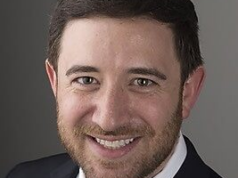
One of the biggest challenges for education in the wake of COVID-19, writes Celia Riga (Head of London School of Surgery, HEE), is integrating service and training priorities whilst managing a “significant” care backlog. In order for this to work, Riga advocates that providers “must stay reactive to training need, identify new ways of practice and, consequently, new ways of learning”.
The pandemic has had a profound and direct impact on craft specialties. Health Education England (HEE) has worked closely with national, regional and local partners to define the scale of COVID-19 disruption to postgraduate training and mitigate the impact. According to Joint Committee on Surgical Training (JCST) data, the number of elective training cases “lost” in the UK since the start of the pandemic, has reached over one million. Surgical logbook analysis has shown a 50% reduction in operative numbers across all surgical disciplines, despite resumption of elective surgery activity. A risk assessment evaluation earlier in the year identified that 8% of trainees on active surgical placements are at high risk of non-progression and a further 5% at an intermediate risk. Of those, 30% are at critical progression point—towards either completion of core surgical training or completion of higher surgical training—reaching 50% for some surgical specialties. Cardiothoracic and vascular surgery are two specialties, particularly at risk both nationally and across the London region. There are significant financial implications to training extensions for those unlikely to meet their Certificate of Completion of Training (CCT) targets. Based on Annual Review of Competency Progression (ARCP) outcomes between May and July 2021, a 12-month delay to Certification for 87 trainees in general surgery alone, would cost over £5 million over two years to cover locum consultant contracts. The impact of the pandemic on training progression has also resulted in national recruitment restrictions to single figures, with some London specialties unable to recruit at all in the first round.
One of the biggest challenges for education as we enter the post-pandemic recovery phase, is integrating service and training priorities whilst managing the significant UK National Health Service (NHS) care backlog. Clinicians have a professional obligation to train at all times, and this role must be recognised and formalised by local and regional providers. To enable trainees to gain essential competencies lost during the pandemic individual training prescriptions have been introduced to support bespoke training plans and wellbeing. HEE will facilitate trainee movement between employers through trainee passports, overcoming traditional administrative barriers. Along with the General Medical Council (GMC) curriculum derogations, training academies, high-volume, low-complexity initiatives and fellowship programmes are being explored. HEE is also supporting the development of digital solutions to improve access to clinics, multidisciplinary teams (MDTs) and additional teaching sessions. With additional government funding, HEE has provided £12.09 million to trusts in England to enable recovery interventions. A further £10m is being distributed through regional postgraduate deans to support Specialty Schools within their geographical areas. The London School of Surgery, the UK’s largest postgraduate surgical training institution, has secured a significant investment towards the delivery of Surgical Skills training through cadaveric, ex-vivo, synthetic and digital simulation models across five key London sites. A further investment to support the development of an HEE-approved online Surgical Library with technology-enhanced learning capabilities is planned. As the major assessment period progresses, training extension rates are currently significantly lower than original projections. However, there is a much anticipated “long-COVID training effect” that will heavily influence education, workforce planning and service delivery in the next five years. For effective education and healthcare reform, therefore, providers must stay reactive to training need, identify new ways of practice and consequently new ways of learning.
Celia Riga is a consultant vascular surgeon at Imperial College London (London, UK) and the Head of London School of Surgery, HEE.












